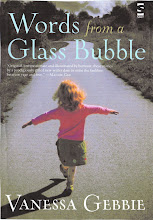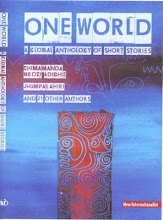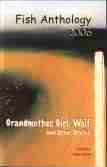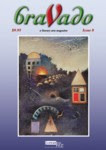.jpg) Shapwick School (HERE)is based in a rather stunning Somerset manor house, complete with a medieval dove cote, - and there is an old mulberry tree and a medlar tree in the grounds, reminders of the past. I’m sure there are no real ghosts- although the kids tease each other about the grey lady who visits the dormitories…. But it is easy to imagine that the ghosts of ladies in sun bonnets still play croquet on the flat lawn outside the staff room windows, and maybe a pale visitor called Hans Christian Andersen makes up stories by the garden wall…
Shapwick School (HERE)is based in a rather stunning Somerset manor house, complete with a medieval dove cote, - and there is an old mulberry tree and a medlar tree in the grounds, reminders of the past. I’m sure there are no real ghosts- although the kids tease each other about the grey lady who visits the dormitories…. But it is easy to imagine that the ghosts of ladies in sun bonnets still play croquet on the flat lawn outside the staff room windows, and maybe a pale visitor called Hans Christian Andersen makes up stories by the garden wall…  Painting of Andersen, 1836, by Constantin Hansen.
Painting of Andersen, 1836, by Constantin Hansen..
Shapwick is a rather special place – a school for dyslexic kids, kids with other ‘stuff’ that stops them learning in the ways our esteemed system requires….the website says: a school which specialises in supporting children aged 6 to 19 who have dyslexia, dyspraxia and dyscalculia. And I was running a ‘Creative Writing Day’ for all 18 Year 9s – an utterly engaging group of mixed-ability kids.
The day was all about imagining. About being given permission to use the pictures inside our heads, and nothing whatsoever to do with ‘English lessons’. Spelling, handwriting, grammar, those things could be forgotten, not worried about, as stories, characters, monsters, colours and shapes streamed in through the door ready to be used. Aided and abetted by Hans Christian Andersen, who listened outside the window.
Why Hans C A? It struck me, as I was planning the day, to look up well known writers who have experienced and overcome learning difficulties- call it whatever label feels comfortable. And who do I find but Hans Christian Andersen -a boy who was uber-sensitive, was a poor student, didn’t finish his schooling until the age of 22 and was the despair of his teachers. His lack of ability in the classroom seems to have sent his imagination into overdrive, as he invented stories from a very early age – maybe to compensate – to escape. And if he could do that, so could we.
And we certainly did. We played the ubiquitous ‘Consequences’ to break the ice and start laughter flowing. We looked at Kafka’s 'The Metamorphosis’ and went off to wonder what it would be like to wake up as…
 a beetle, a spider, a werewolf, a bee, a blue-tit, a monster, a puppy…or to wake up black and tall if you are white and short, or indeed - white and short if you are tall and black!
a beetle, a spider, a werewolf, a bee, a blue-tit, a monster, a puppy…or to wake up black and tall if you are white and short, or indeed - white and short if you are tall and black!Then another… what would it be like if someone you cared about became an ant? How would you protect them? I read them my Ant story, (forthcoming micro-fic collection, Ed’s Wife and other Creatures) and off they went to create their own Ant masterpieces. More interesting stuff! We had ‘Mum’ the ant being put into a jamjar, and being fed a single grain of sugar. We had a brother who turned into a black butterfly ‘because black butterflies are more interesting than ants’. Can’t argue with that…
The afternoon saw my patent ‘poetry machine’ in action, and lines about love being like a hurricane, jealousy like a blizzard, and hurt ‘like an earthquake where you need a ladder to get yourself out of the depths of a chasm’. That from a young lady who blossomed as the day unfolded.
Most of them were so switched on that they went off and wrote by themselves for almost an hour, after lunch, with minimal input. And those who found it hardest had help to decide what to make up… but then off they went, creating scenes from WWI, WWII, and a fab piece about a boywith supercharged farts (!).
.
The best bit? A lad who had found the whole day really hard. He doesn’t write much, he said. He’s better at numbers. Quiet. Doodled a lot. Then in the last half hour, he went off into a corner on his own and came back with four or five lines – lots of crossings out, painstakingly created words… a description of the sun on fresh snow, and the warmth of the rays on his face.
........
Thank you to David Walker, Headmaster, for a wonderful invitation. And to Barry Hulatt, Head of English for letting me loose on the Year 9s.
Finally – here are a few inspirational stories of kids at Shapwick who have overcome really hard difficulties to get some brilliant exam results.
And finally finally, for the boy who wrote about the snow:





.JPG)























4 comments:
That was beautiful. Made me cry. In the UK I worked with kids with learning and behavioural difficulties (the terms are meaningless) - I loved it, it was so satisfying, but I found it emotionally draining also.
I have dyscalculia. I found out after failing my gcse maths for the umpteenth time. It is difficult to explain how it affects me but easy to show!
And everything needs numbers! Even submissions are all about numbers!
I still do not know my home phone number and I have lived here a couple of years (see that, a couple, because I actually cannot work out how long right off the top of my head)! Anyway...I wish I had known earlier and had gone to a school like Shapwick.
I hate the term "learning disability" - dyscalculia (dyslexia) doesn't mean you are not able, it means you will go about what is required of you differently. That's not a bad thing as far as I'm concerned. And I passed my maths - just learned it in a different way and had a little extra time in the exams.
And to be in the snow with the sun on your face...it's a little like that.
Hi Rachel.. thanks so much for the comment.
I have dyscalculalia, a bit... must have. I still can't write down a sequence of numbers without transposing some... and I had to have serious coaching to pass exams in maths when I was small. Goodness kows how much my parents spent on coaching for eleven plus, with all sorts of strategies to learn. And a scrape at GCE (back then).
but it doesnt make any sense. I still get sequences wrong, even if I have 'known' them for years. I get dates round the wrong way. Times. BUT I passed most of the modules of a MBA a few years back, staying up late, mugging up the formulae. Understand it? Nope! never.
The term 'learning difficulty' seems wrong to me. A term made up by those who inhabit the midway school of competence in all, failure in none, excellence in none.
Learning anything is difficult if the students dont want to learn it... and if they do, with sparky teachers they can learn anything. I believe that.
My brother is quite badly dyslexic. He coped...just. Shapwick would have been brilliant.
Dyslexia is interesting...a lot of creatives are dyslexic. Pierre gets very confused over the written word when he spells but his brain is much more lateral than mine...although I have 'caught' some of his patterns of thought over the years. Intelligence is a multi-layered thing and the way people learn, is fascinating....
Sounds like a very stimulating and fulfilling experience....
Hi Julia, lovely to 'see' you. I hope the kids found it stimulating- I hope it wasn't just a day that gets forgotten, but a day that starts them on a journey of discovery, about what they CAN do, not what they can't. So often I think, if people have to get over something in order to succeed - when it doesn't 'come easy - that success means far more.
Post a Comment